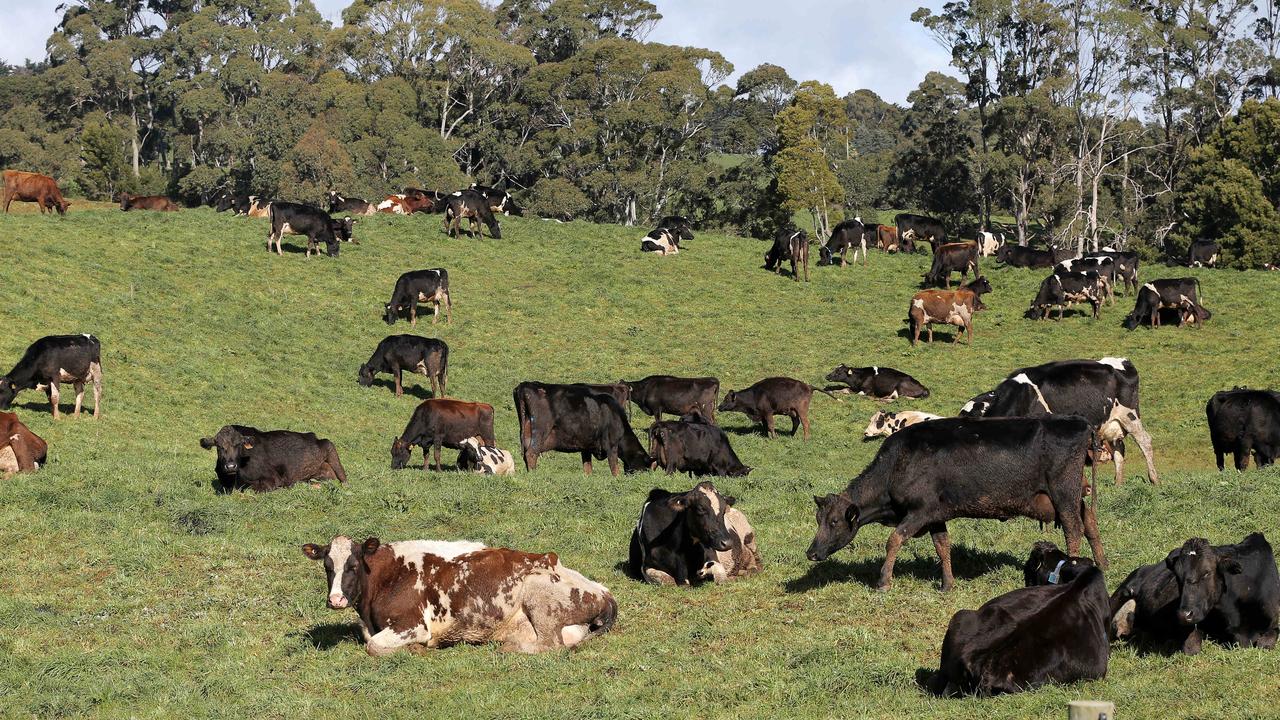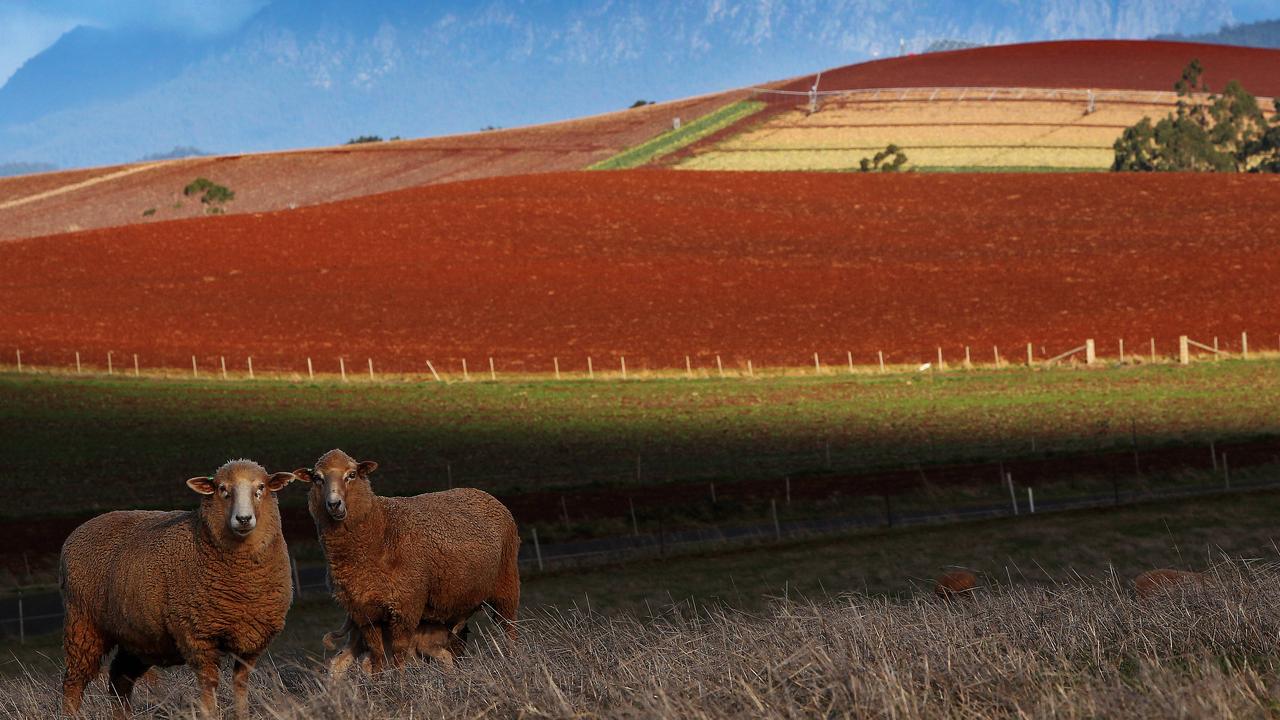Waterton Hall: History honoured in every bottle
Owners of a Tamar Valley vineyard are focused on restoring and respecting the convict-era buildings and trees on their property.
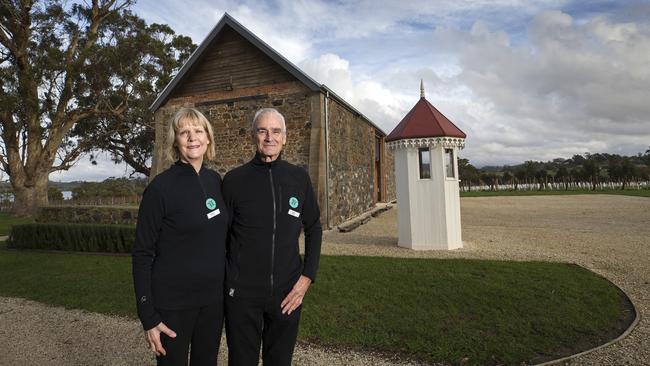
WHEN former beef farmers Susan and David Shannon were on the lookout for a new property it was the fascinating history of Waterton Hall that drew then in.
The couple, who used to farm the well known Westmore property on the s West Coast, bought Waterton Hall in partnership with Mrs Shannon’s brother John Carter and sister-in-law Belinda Evans in 2015.
Mrs Shannon said while the property had been well cared for they could also see enormous potential in it.
“The real hook for us was the history of the property, it’s such a precious place,” Mrs Shannon said
“We loved it when we bought it, but we could also see the potential with what we wanted to do here.”
Waterton Hall, which sits on the banks of the Tamar River at Ruffins Bay near Rowella, was built in the 1850s and is one of the last convict-built properties in northern Tasmania.
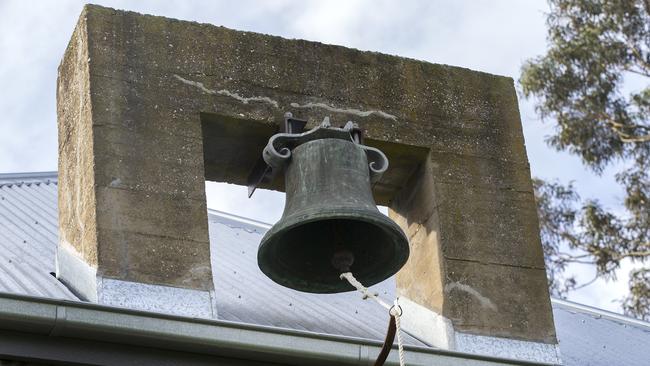
The 25ha property has a long river frontage and a restored boat shed on the water’s edge is testament to the early days when the river played a vital role for transportation and boats would regularly stop in at the Waterton jetty.
Nowadays the main focus is wine production. The original 2.5ha of vines was planted in 1999 and comprised Shiraz, Riesling and Viognier varieties.
Mr Shannon said they had planted a further 7.5ha of vines, including an expansion in Shiraz and Riesling and the inclusion of four Pinot Noir clones and two Chardonnay clones.
Mr Shannon said they had also done major work improving the vineyard by strengthening the trellising systems and installing new irrigation.
To help protect the vineyard, the Shannons have put in wallaby fencing around the perimeter and have fenced off some areas of native vegetation.
A focus on improving the health of the vines has seen a significant increase in grape production.
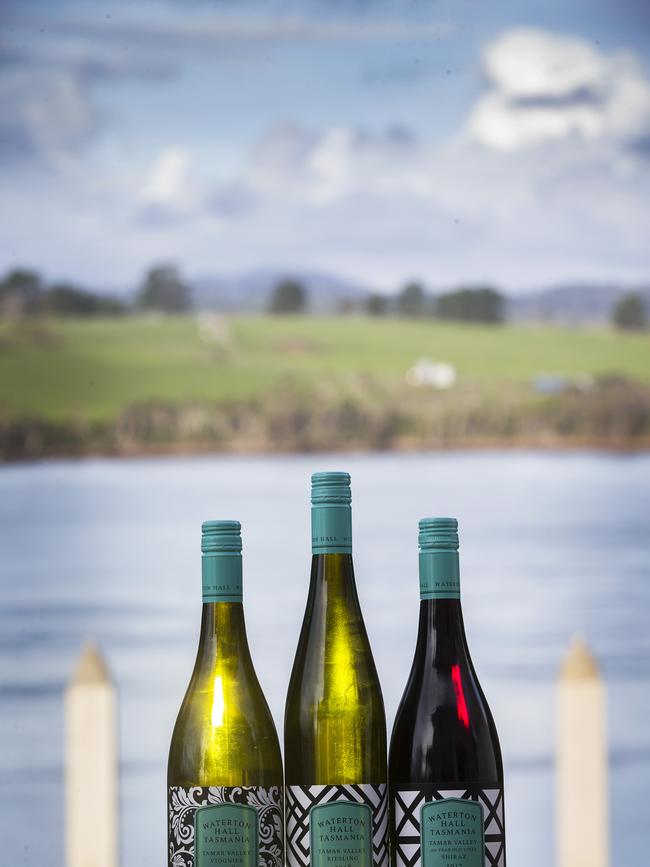
Mr Shannon said this allowed them to now produce a Viognier wine despite a relatively small number of vines.
The new vines, planted in 2017, are expected to produce their first fruit in time for next year’s vintage.
The property’s location and warm microclimate makes it an ideal place for Shiraz, which has not been commonly grown in Tasmania.
Mr Shannon said the Shiraz grapes were left on the vines as long as possible to ensure they ripen and are generally harvested at the end of April.
Only grapes grown on the property are used to produce Waterton Hall wines. Labels on the bottles represent patterns featured on various buildings around the property, including the uniquely shaped arches on the loggia veranda of the main homestead.
“One of the things with us is that when we do things, there’s always some meaning behind it, we don’t just do something because it looks nice,” Mr Shannon said.
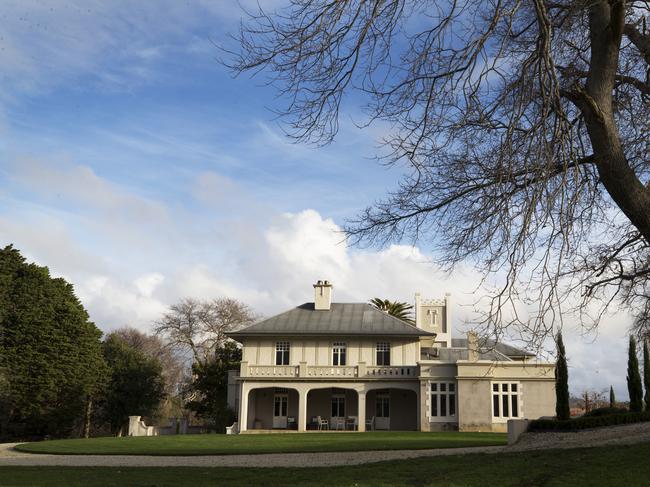
The Waterton Hall wines are made by Glenn James and the team at WineMaking Tasmania. The day-to-day running of the vineyard is handled by manager Tom Mladenovic and his wife Joy Lloyd.
Waterton Hall has earned a number of awards, including champion Riesling at the National Cool Climate Wine Show in 2017 and bronze at the Royal Melbourne Wine Show and the National Cool Climate Wine Show for its 2016 Shiraz.
The Shannons say another big focus has been conservation work to restore the historical buildings, including the homestead and nearby stone barn.
Much of the work has been done by specialist builder Michael Skipper.
The barn features original convict stone work, timber roof shingles and structural beams that were cut from trees off the property.
Outside, the Shannons have also included a small building that was an original ticket booth from the Longford Racecourse. A large bronze bell installed on the roof came from the Launceston fire station.
Unlike the barn, the homestead underwent big changes in the early 1900s. Through the involvement of architect Alexander North, the it was re-skinned using concrete, covering up the original convict stone work and extended to include a chapel and tower.
The barn is now used for functions and to host pop-up cellar door events.
As well as tasting the wines, visitors can also take a guided tour of the grounds. This includes a full run down of the history and tastings of each wine in the corresponding vineyard block, along with matched food.
While the Waterton Hall buildings are spectacular, its surrounding gardens are equally impressive.
Huge 150-year-old deciduous trees line the driveway and at the front of the barn stand two gum trees believed to be about 350 years old.
At the front of the main house a 150 year old magnolia tree is also a feature, along with neatly trimmed box hedges.
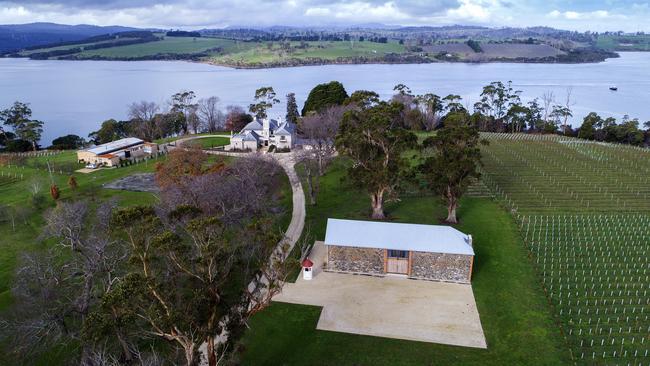
The property was owned for a number of years by the Catholic Church. It was sold to the church in 1949 and was later used to house students at the St Joseph’s Waterton Hall school.
A school house built by the church offers views across the river and is now used for private wine tastings and as a dressing area for weddings.
While most of the major restoration work has been completed, the family’s’ next project is on-site accommodation. Part of this will include a yet unrestored timber building originally brought out from England as a flat pack.
While the Shannons did not have any vineyard experience before buying the property, they have the new challenges it has created.
“We just love the whole process that goes into being involved with making a really top quality, award-winning product,” Mrs Shannon said.
“And taking on this place and the work we’ve put in to hopefully preserve it for another 100 years, that’s something we’re really proud of too.”

